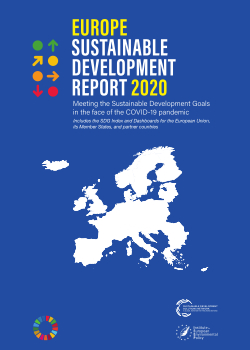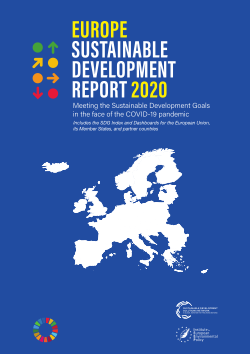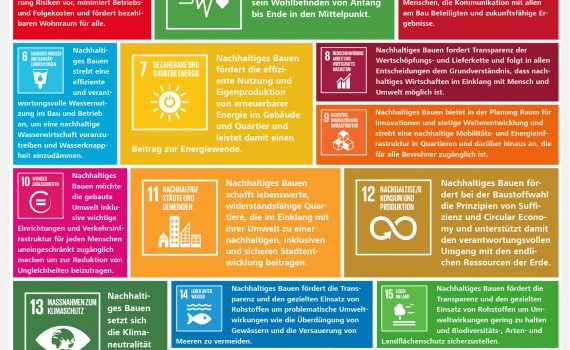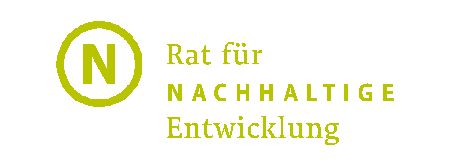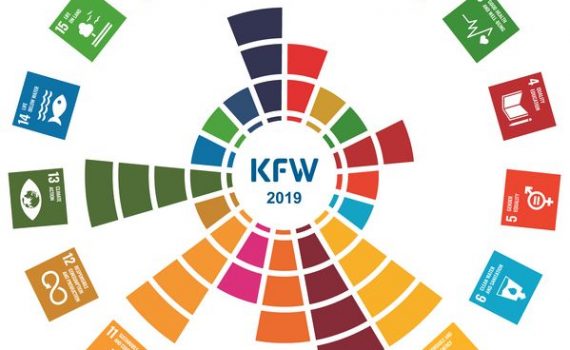More rail transport, reformed motor vehicle tax and less fossil heating needed
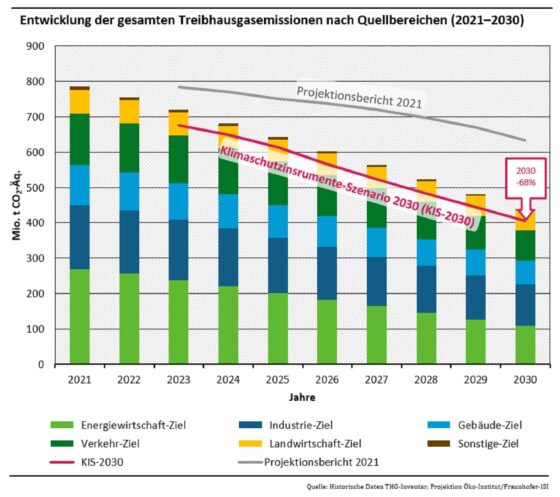 Germany can still achieve its climate targets by 2030. This is shown in a new analysis by the Federal Environment Agency (UBA). This would require, among other things, more rail transport, a reform of the motor vehicle tax and the restriction of fossil heating. In addition, all emissions would have to be priced and charged to the polluter. In the so-called Climate Protection Instruments Scenario 2030 (KIS-2030), the UBA has examined how additional emissions can be saved in the building, mobility, energy and industry sectors. "The model calculation clearly shows that we have a lot of catching up to do in some sectors," says UBA President Dirk Messner. "We now urgently need a constructive dialogue about where emissions can be reduced, otherwise we will miss the legal savings targets. We also need to talk honestly about how to cushion the financial burden on lower-income groups and distribute it more fairly. Currently, low-income households are often asked to pay disproportionately. Understandably, this does not exactly increase acceptance for more climate protection.
Germany can still achieve its climate targets by 2030. This is shown in a new analysis by the Federal Environment Agency (UBA). This would require, among other things, more rail transport, a reform of the motor vehicle tax and the restriction of fossil heating. In addition, all emissions would have to be priced and charged to the polluter. In the so-called Climate Protection Instruments Scenario 2030 (KIS-2030), the UBA has examined how additional emissions can be saved in the building, mobility, energy and industry sectors. "The model calculation clearly shows that we have a lot of catching up to do in some sectors," says UBA President Dirk Messner. "We now urgently need a constructive dialogue about where emissions can be reduced, otherwise we will miss the legal savings targets. We also need to talk honestly about how to cushion the financial burden on lower-income groups and distribute it more fairly. Currently, low-income households are often asked to pay disproportionately. Understandably, this does not exactly increase acceptance for more climate protection.
Kategorie für Blog: SDG 2030
Scientific scenarios on climate neutrality support corporate strategy and planning on the path to decarbonisation - Using the example of buildings and heating, climate economists at DIW Berlin analyse existing scenarios on climate neutrality - Net zero scenarios show a clear path for the transformation of companies and the financial sector - With standardised scenarios and transition plans for climate neutrality, banks, funds and insurance companies can make their portfolios fit for the future.
On 16 June, the member states of the European Union approved a comprehensive revision of the EU Renewable Energy Directive (RED) in the Committee of Permanent Representatives. The European target for renewable energies will thus be significantly increased from the previous 32% to 45% in 2030. This means a doubling of the share of renewable energy compared to the level reached in 2021 of just under 22%. This is a great success for the expansion of renewables: It roughly doubles the planned expansion of renewable energy by 2030. To achieve the new targets, more than 100 GW of new wind turbines and solar installations will be installed in the EU every year. For Germany, this means that the significantly increased expansion targets for wind and solar energy in 2022 will be underpinned by European targets and become binding. The higher EU targets also form the framework for further measures and targets in the EU, such as the EU's solar strategy, which aims to roughly triple PV capacity to 600 GW by 2030.
The German Association of Cities, the Global Parliament of Mayors and the international cities network ICLEI have joined forces to form a Cities Alliance to accompany the German G7 Presidency. The alliance is organising a conference on Tuesday, 3 May a U7 Mayors Summitwhich brings together high-ranking representatives of cities from the G7 countries. Representatives of the media are invited to follow the event virtually. The international dialogue will take place under the heading "Engaging the Urban World - Cities as Engines of Change for Peace, Democracy and Sustainability".. It is the most important event of cities in the framework of the German G7 Presidency. A joint declaration by the cities will also be adopted: In the „Urban7 Mayors Declaration“ the city leaders from the G7 countries will present their expectations of politics and business in order to meet the global challenges on the ground.
 The new National Progress Report on the Implementation of the New Urban Agenda shows the state of sustainability in urban development in German municipalities. The report was prepared by the German Institute of Urban Affairs on behalf of the Federal Institute for Research on Building, Urban Affairs and Spatial Development (BBSR).
The new National Progress Report on the Implementation of the New Urban Agenda shows the state of sustainability in urban development in German municipalities. The report was prepared by the German Institute of Urban Affairs on behalf of the Federal Institute for Research on Building, Urban Affairs and Spatial Development (BBSR).
 To live up to its climate change pledge under the Paris Agreement, the European Union must ensure that all 250 million existing buildings, as well as all new buildings in the EU, produce near-zero greenhouse gas emissions. In a new report, European national academies of science, through their association EASAC, call for far-reaching policy action. "Policies have long focused on creating energy-efficient buildings that require less heating and air conditioning or generate renewable energy on site. However, the energy used to operate buildings is only part of the story. We need to broaden the scope and look at emissions from building materials and methods - both for new buildings and for building refurbishment," says William Gillett, Director of EASAC's Energy Programme.
To live up to its climate change pledge under the Paris Agreement, the European Union must ensure that all 250 million existing buildings, as well as all new buildings in the EU, produce near-zero greenhouse gas emissions. In a new report, European national academies of science, through their association EASAC, call for far-reaching policy action. "Policies have long focused on creating energy-efficient buildings that require less heating and air conditioning or generate renewable energy on site. However, the energy used to operate buildings is only part of the story. We need to broaden the scope and look at emissions from building materials and methods - both for new buildings and for building refurbishment," says William Gillett, Director of EASAC's Energy Programme.
"Municipalities are crucial drivers for the sustainable development of our society," explains Dr. Werner Schnappauf, Chairman of the German Council for Sustainable Development (RNE). "All 17 sustainability goals are directly or indirectly related to the tasks of a municipality. The new reporting framework sustainable municipality, the BNK, can be a great help for further progress in the field of sustainability", says Schnappauf.
How can Bonn become climate neutral by 2035? This is the question that the participatory project "Bonn4Future - We for the Climate!" would like to discuss together with Bonn citizens over the next two years. Since mid-2019, the climate emergency has been in effect in Bonn; in November 2019, the Council decided that Bonn should become climate neutral by 2035. The city and the non-profit association Bonn im Wandel have now signed a cooperation agreement and thus launched "Bonn4Future".
 The German Sustainable Building Council (DGNB e.V.) has published a new report explaining how buildings can contribute to the United Nations' global sustainability goals. The publication compares the 17 Sustainable Development Goals (SDGs) with the potential influence of sustainable planning and construction. Architects and planners, as well as building owners and municipalities, are thus provided with orientation as to how they can meaningfully become active in terms of sustainable development. The report also offers a comparison of the SDGs with the criteria of various DGNB certification systems. This shows: Up to 15 of the 17 SDGs are addressed in the context of the DGNB certification of a building project.
The German Sustainable Building Council (DGNB e.V.) has published a new report explaining how buildings can contribute to the United Nations' global sustainability goals. The publication compares the 17 Sustainable Development Goals (SDGs) with the potential influence of sustainable planning and construction. Architects and planners, as well as building owners and municipalities, are thus provided with orientation as to how they can meaningfully become active in terms of sustainable development. The report also offers a comparison of the SDGs with the criteria of various DGNB certification systems. This shows: Up to 15 of the 17 SDGs are addressed in the context of the DGNB certification of a building project.
 On the occasion of the meeting of EU Ministers for Urban Development and Territorial Cohesion on the "New Leipzig Charter", Daniela Wagner, spokesperson for urban development for Alliance 90/The Greens in the German Bundestag, explains:
We welcome the "New Leipzig Charter". Without the transformative power of cities and the ideas and drive of their residents, we will not be able to overcome the challenges of the climate crisis. Nevertheless, the Charter contains significant gaps. The guiding principle of the resilient city is missing. The development of robust and resilient cities is important in order to better assess risks and recognise and prevent dangers in good time. The guiding principle of the healthy city is also not mentioned - despite the heatwaves caused by the climate crisis, a never-ending stream of air pollutants from fossil fuelled combustion engines and the current challenge of a global pandemic.
On the occasion of the meeting of EU Ministers for Urban Development and Territorial Cohesion on the "New Leipzig Charter", Daniela Wagner, spokesperson for urban development for Alliance 90/The Greens in the German Bundestag, explains:
We welcome the "New Leipzig Charter". Without the transformative power of cities and the ideas and drive of their residents, we will not be able to overcome the challenges of the climate crisis. Nevertheless, the Charter contains significant gaps. The guiding principle of the resilient city is missing. The development of robust and resilient cities is important in order to better assess risks and recognise and prevent dangers in good time. The guiding principle of the healthy city is also not mentioned - despite the heatwaves caused by the climate crisis, a never-ending stream of air pollutants from fossil fuelled combustion engines and the current challenge of a global pandemic.
 "In key policy areas, it is not enough to take additional steps; instead, a fundamental transformation must be initiated - the Federal Government recognises this with its dialogue version of the German Sustainability Strategy. The momentum for this transformation is now, and it needs tailwind from all ministries," explained Dr. Werner SchnappaufChairman of the German Council for Sustainable Development (RNE). "The version of the dialogue brings important innovations that will allow the policies of the coming years to be more closely aligned with the guiding principle of sustainability. The designation of transformation areas such as the energy and transport transition or the transition to a circular economy is an important step forward. At the same time, we believe that there is still room for improvement in some areas," said Schnappauf.
"In key policy areas, it is not enough to take additional steps; instead, a fundamental transformation must be initiated - the Federal Government recognises this with its dialogue version of the German Sustainability Strategy. The momentum for this transformation is now, and it needs tailwind from all ministries," explained Dr. Werner SchnappaufChairman of the German Council for Sustainable Development (RNE). "The version of the dialogue brings important innovations that will allow the policies of the coming years to be more closely aligned with the guiding principle of sustainability. The designation of transformation areas such as the energy and transport transition or the transition to a circular economy is an important step forward. At the same time, we believe that there is still room for improvement in some areas," said Schnappauf.
 As stated by EU Commission President Ursula von der Leyen in her State of the Union address announced, the European Commission today (Thursday) proposed that EU greenhouse gas emissions should fall by at least 55 percent by 2030 compared to 1990 levels. The previous target was 40 percent. The new target is based on a comprehensive impact assessment of the social, economic and environmental consequences. This shows that 55 percent less emissions is realistic and feasible. The new climate target will help support Europe's economic recovery from the coronavirus pandemic. It also demonstrates the EU's global leadership in the run-up to the next UN climate conference (COP26).
As stated by EU Commission President Ursula von der Leyen in her State of the Union address announced, the European Commission today (Thursday) proposed that EU greenhouse gas emissions should fall by at least 55 percent by 2030 compared to 1990 levels. The previous target was 40 percent. The new target is based on a comprehensive impact assessment of the social, economic and environmental consequences. This shows that 55 percent less emissions is realistic and feasible. The new climate target will help support Europe's economic recovery from the coronavirus pandemic. It also demonstrates the EU's global leadership in the run-up to the next UN climate conference (COP26).
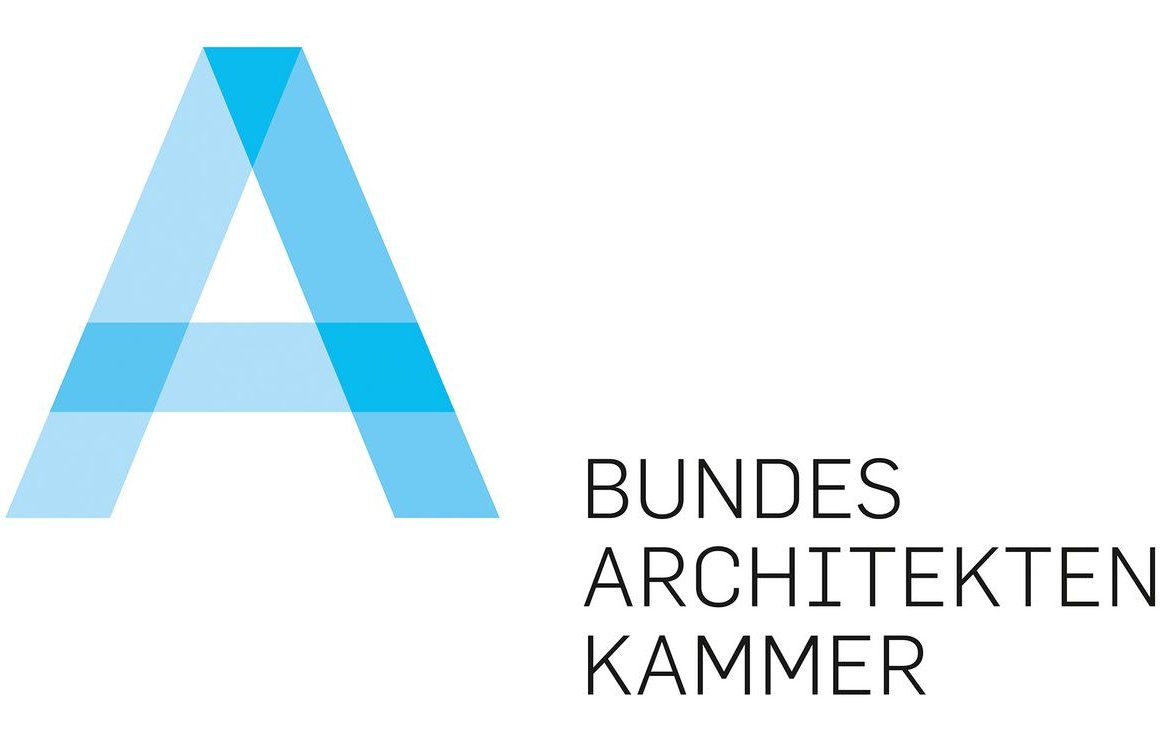 The Federal Chamber of Architects (BAK) and the Federal Foundation of Baukultur presented their proposal for a "Baukultur Innovation Programme" to politicians in Berlin today on behalf of the planning and construction industry.
Anne Katrin Bohle, State Secretary at the Federal Ministry of the Interior, Building and Community, accepted the four-point plan. In it, the authors suggest measures to overcome the coronavirus crisis that will have a lasting economic and social impact.
The Federal Chamber of Architects (BAK) and the Federal Foundation of Baukultur presented their proposal for a "Baukultur Innovation Programme" to politicians in Berlin today on behalf of the planning and construction industry.
Anne Katrin Bohle, State Secretary at the Federal Ministry of the Interior, Building and Community, accepted the four-point plan. In it, the authors suggest measures to overcome the coronavirus crisis that will have a lasting economic and social impact.
- Over EUR 28 billion for "climate protection measures": KfW is one of the most important supporters of the Paris climate goals
- Promotional bank is a global pioneer with its standardised SDG mapping
- Strong international interest in KfW SDG mapping
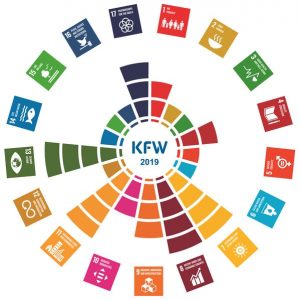 KfW is today publishing the results of the SDG mapping of new commitments throughout the Group in 2019. In order to clarify the individual contribution made by KfW's new commitments to achieving the UN Sustainable Development Goals, KfW has developed a standardised procedure: 1,500 indicators are used each year to determine to which SDGs KfW's new commitments can be assigned. This makes the contribution transparent at both group and business sector level.
KfW is today publishing the results of the SDG mapping of new commitments throughout the Group in 2019. In order to clarify the individual contribution made by KfW's new commitments to achieving the UN Sustainable Development Goals, KfW has developed a standardised procedure: 1,500 indicators are used each year to determine to which SDGs KfW's new commitments can be assigned. This makes the contribution transparent at both group and business sector level. 27.01.2020 A material revolution that replaces cement and steel with wood in urban construction can have double benefits for climate stabilization. This is now shown in a study by an international team of scientists. First, it can avoid greenhouse gas emissions from cement and steel production. Secondly, it can turn buildings into carbon sinks, since in the construction timber the CO2 is stored. Although the required amount of wood is theoretically available, such an expansion would require very careful sustainable forest management, the authors emphasize.
27.01.2020 A material revolution that replaces cement and steel with wood in urban construction can have double benefits for climate stabilization. This is now shown in a study by an international team of scientists. First, it can avoid greenhouse gas emissions from cement and steel production. Secondly, it can turn buildings into carbon sinks, since in the construction timber the CO2 is stored. Although the required amount of wood is theoretically available, such an expansion would require very careful sustainable forest management, the authors emphasize.
150 concrete proposals are contained in a catalogue that the city of Bonn has drawn up in recent months following the declaration of the climate emergency. Many of the measures can be implemented directly by the administration, while others require a political decision. At a press conference on Wednesday, 22 January 2020, Lord Mayor Ashok Sridharan and City Planning Officer Helmut Wiesner presented the catalogue of measures. On 4 July 2019, Bonn City Council decided to support a resolution to declare a climate emergency. Bonn has thus joined other municipalities and reaffirmed that climate protection must be a top priority in municipal action. The administration has therefore drawn up a catalogue of measures over the past few months with the involvement of all departments.
 Climate protection and socially just construction and housing must be considered together - Legal regulations in the rental housing sector and state subsidy practice undermine climate goals in the building sector - Deutsche Umwelthilfe and Deutscher Mieterbund present 10-point immediate programme for socially acceptable design of energy modernisation in existing and new buildings - KfW subsidy practice must be subjected to a reality check - Social provisions must be supplemented by climate policy requirements
Climate protection and socially just construction and housing must be considered together - Legal regulations in the rental housing sector and state subsidy practice undermine climate goals in the building sector - Deutsche Umwelthilfe and Deutscher Mieterbund present 10-point immediate programme for socially acceptable design of energy modernisation in existing and new buildings - KfW subsidy practice must be subjected to a reality check - Social provisions must be supplemented by climate policy requirements
Since 17 December 2019, the "Competence Centre for Sustainable Procurement and Contracting" (KNBV) has been supporting municipalities and other public administration bodies in Schleswig-Holstein in taking sustainability into account. In this context, the range of tasks extends from paperless procurement processes and PVC-free office supplies to electric service vehicles including a charging station concept or sustainable services such as plastic-free, fair and regional catering. The KNBV provides advice, information and support for all questions relating to these processes, products or committee and public relations work. Interested municipalities and other public administration bodies will find competent answers for concrete projects as well as a wide range of training courses and events.
 While European environmental and climate policies have helped to improve the state of the environment in recent decades, progress has been insufficient and the outlook for the environment over the next decade is bleak, according to the report "The Environment in Europe - State and Outlook 2020en (SOER 2020)" is not positive.
The SOER 2020 is the most comprehensive environmental assessment ever undertaken for Europe. It provides an unsparing snapshot of Europe's position in terms of achieving its 2020 and 2030 policy targets, as well as its longer-term 2050 goals and ambitions for a transition to a sustainable, low-carbon future. The report points out that Europe has already made significant progress in mitigating climate change by reducing greenhouse gas emissions over the past two decades. There are also signs of progress in other areas. Examples include the fight against air and water pollution, new strategies against plastic waste, progress in adapting to climate change and in the areas of circular economy and bioeconomy. In addition, the EU Sustainable Finance Initiative addresses for the first time the role of the financial sector in the necessary transition towards a sustainable future.
While European environmental and climate policies have helped to improve the state of the environment in recent decades, progress has been insufficient and the outlook for the environment over the next decade is bleak, according to the report "The Environment in Europe - State and Outlook 2020en (SOER 2020)" is not positive.
The SOER 2020 is the most comprehensive environmental assessment ever undertaken for Europe. It provides an unsparing snapshot of Europe's position in terms of achieving its 2020 and 2030 policy targets, as well as its longer-term 2050 goals and ambitions for a transition to a sustainable, low-carbon future. The report points out that Europe has already made significant progress in mitigating climate change by reducing greenhouse gas emissions over the past two decades. There are also signs of progress in other areas. Examples include the fight against air and water pollution, new strategies against plastic waste, progress in adapting to climate change and in the areas of circular economy and bioeconomy. In addition, the EU Sustainable Finance Initiative addresses for the first time the role of the financial sector in the necessary transition towards a sustainable future.
1 trillion to be invested by the EU
 More than 30 mayors agreed on new strategic cornerstones for sustainability on Thursday, 14 November 2019. Among them is Bonn's Lord Mayor Ashok Sridharan. The city leaders want to expand the cities' scope for action and call for sustainable development to be placed at the heart of political decision-making.
More than 30 mayors agreed on new strategic cornerstones for sustainability on Thursday, 14 November 2019. Among them is Bonn's Lord Mayor Ashok Sridharan. The city leaders want to expand the cities' scope for action and call for sustainable development to be placed at the heart of political decision-making.
 The German government is presenting striking figures for the 17 global SDG 2030 sustainability goals. The "Glorious 17" campaign launched at the beginning of December is intended to arouse curiosity and encourage participation. An animated peace dove, for example, promotes peace and justice. Other figures stand for the fight against hunger and the protection of life under water.
The German government is presenting striking figures for the 17 global SDG 2030 sustainability goals. The "Glorious 17" campaign launched at the beginning of December is intended to arouse curiosity and encourage participation. An animated peace dove, for example, promotes peace and justice. Other figures stand for the fight against hunger and the protection of life under water.
The call for proposals "City of the Future - Towards Plus-Energy Neighbourhoods" builds on previous experience from the research programme specific focus areas and R&D services. All stakeholders who are involved in research and development issues relating to buildings, neighbourhoods and cities and who want to tackle the new challenges of digitalisation in the construction industry, the realisation of plus-energy neighbourhoods and the development of innovative urban greening technologies can submit proposals. Around €8.3 million is available for the 7th call for proposals as part of the "City of the Future" programme. The call runs until 30 January 2020.
At the meeting of the Standing Conference of the Ministers of Education and Cultural Affairs of the Länder (KMK) in Berlin on 17 and 18 October, the Ministers of Education and Cultural Affairs of the Länder adopted a joint declaration on the United Nations' Education 2030 Agenda (SDG 4).
According to a new study by EU scientists, one percent of the EU's surface area is enough to cover the community's entire electricity needs with solar power. https://www.solarserver.de/solar-magazin/nachrichten/aktuelles/2019/kw40/europa-unabhaengig-mit-solarstrom.html
From the meeting of the Berlin Senate on 24 September 2019: At its meeting today, the Senate adopted the report to the House of Representatives on "Sustainability in construction: Berlin builds with wood", following a presentation by the Senator for the Environment, Transport and Climate Protection, Regine Günther. The Senate is consistently pursuing the goal of making Berlin [...]
Anne Katrin Bohle has been State Secretary for Construction at the Federal Ministry of the Interior, Building and Housing since March 2019. The "Leipzig Charter" is to be further developed into the "Leipzig Charter 2.0" by the time of the German EU Council Presidency in 2020. The "Leipzig Charter", which is little known even among experts, invokes the values of "citizens' co-determination and self-determination, calls for the [...]
Even before the UN Summit on Sustainable Development, it is clear that the implementation of the 2030 Agenda is making slow progress. The global community now needs action instead of words to achieve the Sustainable Development Goals. The international report on the status of SDG implementation shows that there are major gaps in implementation worldwide. The number of people suffering from hunger is increasing again worldwide [...]
Prof Maja Göpel is a member of the Federal Government's Scientific Advisory Council and a member of Scientists for Future. She criticises the fact that Germany's climate targets cannot be achieved with the GroKo's climate package. Interview with Volker Quaschning: "Expectations massively undercut" www.zdf.de/...volker-quaschning-zum-klimapaket...
On Saturday, 14 September, the RENN.west campaign "Goals need action" was launched in Dortmund. It informs about the 17 Sustainable Development Goals and mobilizes people for their implementation. Prominent supporters are the BVB, the multiple boxing world champion Wladimir Klitschko and the top model Elena Carrière.
Is economic growth compatible with sustainability? A new report by the European Environmental Bureau (EEB), DNR and the Institute for Sustainable Economies (ZOE) clearly shows: No! Resource consumption, which is responsible for increasing environmental degradation, cannot be decoupled from economic growth. With a comprehensive analysis of scientific data, the report "Decoupling debunked - Evidence [...]
"Düsseldorfer Erklärung zum Städtebaurecht" (Düsseldorf Declaration on Urban Planning Law) 50 city planning councillors, department heads and heads of planning offices from over 40 German cities, including Hamburg, Hanover, Munich, Cologne, Bochum, Freiburg, Stuttgart and Frankfurt am Main, have signed the "Düsseldorfer Erklärung zum Städtebaurecht" (Düsseldorf Declaration on Urban Planning Law). They are calling for a fundamental amendment of the Building Use Ordinance (BauNVO) and the administrative regulation TA-Lärm, so that in future beautiful and [...]





